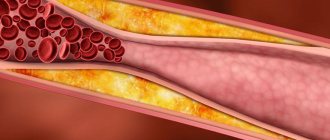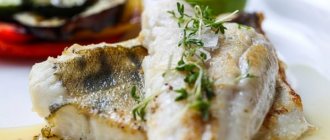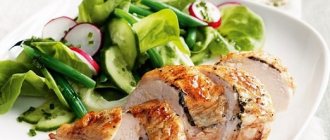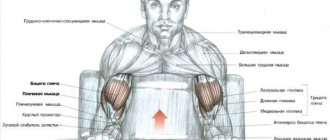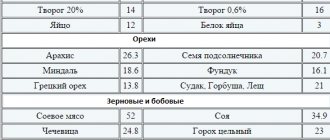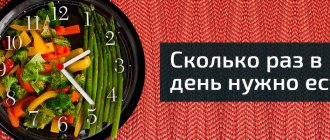Eggs contain a lot of energy, essential substances, vitamins and minerals that our body requires. Eggs are eaten in any form: fried, baked, boiled or raw. They can be eaten both as a separate dish and as part of other dishes. These are salads, pastries, cocktails.
Until now, not everyone knows why you can’t eat a lot of eggs and why it is harmful. After all, they contain a lot of useful substances that are found in the yolk, white, and shell.
The egg is a rather controversial product. Eggs contain all the nutrients the body needs to function. The protein itself contains a sufficient amount of amino acids that the body requires for good functioning. Egg fats contain polyunsaturated fatty acids. Almost all known vitamins can be found in this product. But excessive consumption of eggs, especially raw eggs, can cause damage to the body due to dangerous compounds that disrupt metabolic processes. This is one of the reasons why you should not eat many eggs a day.
Harm and contraindications of eggs
Despite the important role of eggs in our diet, this product can be harmful to the body under certain conditions. What are the negative effects of this product?
- With excessive consumption of eggs, the liver suffers, harmful cholesterol accumulates in the body, which contributes to the development of atherosclerosis.
- An egg that is not thermally treated can cause a serious illness - salmonellosis.
- To ensure survival, chickens kept in poor conditions are given antibiotics in their feed, which are then laid in their eggs. This reduces a person’s immunity and susceptibility to drugs.
- Poor quality chicken feed contributes to the accumulation of nitrates in eggs, which have a negative effect on the human body.
- Egg is a product that often causes allergies.
It is not recommended for allergy sufferers to eat eggs. People with diabetes, cholecystitis, obesity, or high cholesterol should significantly limit their consumption of the product and include it in their diet only on the recommendation of a doctor.
What diseases can be caused?
Based on recent research, frequent consumption of eggs is directly linked to the development of type 2 diabetes. Excessive consumption of eggs can increase blood glucose levels. This can cause problems with the functioning of the pancreas. This circumstance is also the reason why you should not eat a lot of boiled eggs.
When using eggs in your diet, you should not forget that they can cause salmonellosis. To eliminate the possibility of infection with this dangerous disease, certain rules must be observed during the storage, preparation and consumption of this product.
How many eggs can you eat per day?
If a person is healthy, you can even eat eggs, but you need to do it correctly, focusing on the norms recommended by nutritionists for various categories of people. An adult can eat 1-2 eggs a day with breaks without harm to health (no more than 7-8 eggs per week). An athlete needs much more: great physical activity contributes to intensive digestion of food.
The rate of consumption of eggs by people involved in sports depends on the specifics of the diet, age, body weight, and type of activity. The average daily norm is 3-5 eggs. To build muscle mass, a bodybuilder needs to eat up to 10 pieces a day. During drying, you need to limit yourself to protein only - no more than 20 g (1 protein) daily.
Cholesterol in human blood
Cholesterol is a special substance similar to beeswax. It plays a vital role in metabolism.
Cholesterol is part of the membrane of cells, brain, and nerves. It produces special hormones, exactly the necessary male hormone - testosterone. It is the blood that transports cholesterol throughout the human body.
As a rule, if the concentration of this substance exceeds the norm, then atherosclerotic plaques will form and deposit on the walls of blood vessels. In the future, they contribute to poor blood flow, causing various problems and diseases in the human body.
Cholesterol is produced in most cases in the liver - 80%. Everything else enters the body with food.
Cholesterol is found in very small amounts in plant foods.
When dietary cholesterol enters the body, it is absorbed into the small intestine and subsequently enters the liver. The liver continues to use this substance as cholesterol. It is the liver that regulates cholesterol levels in the blood and the body as a whole. Remember, high cholesterol levels contribute to the occurrence of stroke and heart attack.
However, the appearance of heart problems can be influenced not only by high cholesterol, but also by other factors and diseases. Cholesterol is very important in the human body, and only in large quantities can it cause harm. Cholesterol is also extremely important for cell renewal.
If you reduce your consumption of meat, chicken, and dairy products, your cholesterol levels will decrease in the future. A low-carb diet also helps very well, normalizing the level.
The main cause of high cholesterol is poor and unhealthy diet. And also lack of physical activity. Also, elevated levels can be hereditary.
https://youtu.be/IVilxOU6kbM
You should not get too carried away with sweets, and also eat mayonnaise, chips, and fried foods. An active lifestyle helps to normalize the entire body as a whole.
Helps lower cholesterol:
- Eating low-calorie foods;
- Eat more fruits and vegetables;
- If you are obese, go on a diet;
- Limit your intake of animal fats;
- Consume sea fish;
- Rejection of bad habits.
Age also affects the amount of cholesterol. It only increases with age. You should also monitor the medications you take.
Is it possible to drink raw eggs?
Many athletes prefer to include raw eggs in their meals. On the one hand, this is reasonable: thermally untreated eggs are digested more slowly, which means more calories are burned, and moreover, raw eggs retain all the nutrients in their entirety. However, it is recommended to drink raw eggs only if you are confident in their quality and manufacturer. Otherwise, this may result in salmonellosis. In addition, boiled protein is completely absorbed, while raw protein is only half absorbed.
Benefits of raw eggs for men and women
Let's first talk about male benefits. A long time ago, when no one had yet heard of Viagra and similar newfangled and advertised drugs, raw eggs successfully helped men restore and improve potency. Now this unique property is somewhat forgotten, but in vain. It’s not a bad idea to remember it again if someone needs it.
A special egg cocktail has long been known to help restore male strength. Its recipe is simple:
- take two glasses of warm cow's milk;
- add one raw chicken egg to it;
- As additional ingredients, we also add 1 tablespoon of fresh honey and yeast.
Mix everything thoroughly. That's it, the cocktail is ready. You need to drink it in the morning on an empty stomach, half an hour before meals. The number of sessions depends on the result. And the result is guaranteed.
But this is not all the benefits of raw eggs for the male body and health. Also, due to their unique composition and large amount of protein, the contents of raw eggs perfectly replace the protein necessary for building muscles. A raw egg is even better than protein, as it is an exclusively natural product.
In addition, raw eggs strengthen men’s immunity and also prevent vitamin deficiency.
Now let's talk about women's benefits. Since ancient times, raw eggs have been valued as a means of preserving youth and beauty. Their contents improve beauty, health and hair growth, rejuvenate the skin of the face and body. Raw protein and yolk are added to masks for the face and whole body; they are also used to wash hair. None of the women have yet said that egg masks and shampoos brought them harm.
Raw eggs also help pregnant women. Especially quail ones. If the expectant mother drinks them regularly, the fetus inside develops much faster and more successfully. In addition, they are also useful for the woman herself: they improve memory, prevent anemia, make it easier to endure the hardships of pregnancy, and also make it easier to give birth.
And now - about the harm...
So, the benefits of raw eggs, compared to the harm from them, are much greater. Still, there is harm, and you should be aware of it. Neither in the morning on an empty stomach, nor at lunch on a full stomach - in any case, in general, you should not drink raw eggs:
- if the man, woman or child is overweight;
- for liver or kidney diseases;
- children under 3 years of age;
- women in the first third of pregnancy, as well as throughout pregnancy, if toxicosis is observed;
- if you are allergic to this product.
You should also never overuse raw eggs (in this case, we are talking about chicken eggs). Scientists have proven that consuming them too often increases the risk of dying prematurely by as much as 25%! According to scientists, the optimal number of raw chicken eggs per week is 5. Let's remember these numbers.
How to drink eggs correctly
It is usually customary to eat chicken and quail eggs raw. Let's first talk about chicken.
- The eggs must be fresh, and the chicken that laid them must be healthy (of course, if there is a real opportunity to determine this). In a popular way, the freshness of an egg is determined as follows. Place it in a container filled with cold water. A fresh egg will fall to the bottom. If it is not fresh, it will float on the surface.
- The eggshell should be even, smooth, and without damage.
- Please be aware that some eggs may be contaminated with salmonella. Therefore, they must be stored in the refrigerator, and before use, washed in cold water with detergents.
- It happens that someone doesn’t like a raw egg. In this case, juice or sugar is added to the contents. Ginger, nutmeg or cinnamon also help improve the taste and eliminate the specific smell.
Quail eggs are considered healthier and safer than chicken eggs. They almost do not cause allergies, and therefore are allowed for children from the age of 1 year. When eating quail eggs, you must first wash them with water and soap. This is necessary to clean the shell from possible pullorosis. This is an intestinal disease. Its bacteria usually live on the shells of quail eggs. The bacteria cannot penetrate inside the egg, so there is nothing to fear here.
Raw quail eggs are taken on an empty stomach about half an hour before breakfast. For better absorption, they should be washed down with water.
Children under 3 years of age benefit from no more than 1 quail egg per day, children aged 3-8 years - 2 eggs, children and adolescents from 9 to 18 years old - 3-4 pieces, people from 19 to 50 years old - 6-7 pieces, for older people – no more than 5 eggs.
Is it possible to eat eggs while losing weight?
Eggs are not only one of the healthiest foods, but also the best ones for weight loss. This feature is explained by their special properties.
- A small amount of calories (about 78 in one egg) corresponds to the main principle of weight loss - reducing the calorie content of food consumed.
- High protein content gives you a feeling of fullness: you want to eat less.
- Egg whites are rich in amino acids that stimulate metabolism, which is very important for the weight loss process.
- Eggs have a “thermogenic effect”: they contain a lot of protein, it takes a lot of energy to break it down, and as a result, calories are actively burned.
On a note.
The best time to eat eggs is morning. Scientists have proven that if a person eats an egg for breakfast, he consumes fewer calories throughout the day than when he eats, for example, a croissant with the same energy value!
White, yolk and shell
Eggshells are made up of calcium and magnesium carbonates, phosphates and other chemicals. The structure of the shell consists of a supra-shell shell, which protects the egg from drying out, a supra-albuginous and sub-shell shell. At its blunt end there is a gas chamber. It is with the help of it that the process of respiration of the embryo occurs. The color of the shell depends on the bird's diet, the season when the egg was laid, and many other features.
If the purpose of the shell is to protect the embryo from the external environment, then the yolk and white, in turn, are additional food for the embryo. The most valuable and nutritious part of an egg is the yolk. It acts as the main type of food. The yolk takes up almost a third of the entire egg. It consists of an embryo, a yolk sphere (dark and light yolk) and a yolk membrane. Almost half of this part of the egg consists of water, the remaining components are fats, cholesterol and proteins. The energy value of the yolk is approximately 60-80 kcal. This is three times the value of protein.
Water makes up 85-90% of egg white. The remaining components are various proteins, carbohydrates, fats, glucose, B vitamins, etc.
How to choose the right eggs?
High-quality chicken eggs must have a clean shell of a uniform structure, without cracks, and be consistent in weight and size. The category is marked on the shell:
- “D” – dietary egg, with a shelf life of no more than 7 days;
- “C” – table food, can be stored for up to 25 days.
The next marking sign is the type of egg, depending on its weight. An egg of the highest category “B” weighs 75g or more; selected “O” – from 65 to 75g; Next comes the 1st category egg (55-65g); 2 (45-55g); 3 – from 35 to 45g. For those wishing to lose weight, it is important to know that the larger the egg, the higher its calorie content. In the selected variety, for example, there are 85 units.
The most important indicator of egg quality is their freshness. There are several ways to determine this parameter.
- Bring the egg to your ear and shake: the stale one creates a gurgling sound.
- Pay attention to the shell - a fresh egg has a matte finish, but a stale egg can be glossy.
- The most common way is to immerse the product in water. A completely “drowned” egg is no more than three days old, and one floating on the surface is more than a week old.
- The white of a fresh broken egg does not spread, has a uniform structure and light color.
Some manufacturers enrich food with special mixtures to increase the content of microelements in eggs - for example, iodine or selenium. Then there are special symbols on the packaging.
Minerals and vital elements
We have already mentioned the amazing property of the yolk to produce healthy cholesterol and prevent the formation of “bad” cholesterol: this is due to the high content of lecithin in the yolk, which actively fights the appearance of excess weight and removes excess “wrong” cholesterol.
Linolenic acid, which makes up 16% of the total yolk content, is a very necessary thing for the body, which is unable to independently produce this substance - it is an essential unsaturated fatty acid necessary for normal human life.
Choline improves metabolism and normalizes fat metabolism, and melatonin regulates the activity of the endocrine system and blood pressure. If the yolk still has not convinced you of its benefits, we remind you that in addition to all this, it also contains calcium, phosphorus and, like bananas, a significant amount of potassium.
In what form is it best to eat eggs?
As already noted, many athletes prefer to drink raw eggs. But it’s better to boil or fry them: this way the protein necessary for muscle growth is better absorbed, and the chance of getting a “bonus” in the form of salmonellosis is minimized. You need to cook the eggs for at least 7-8 minutes so that the yolk is completely cooked and hard. The best option is hard-boiled eggs: frying requires fat, which will increase the amount of calories and cholesterol.
How to cook eggs correctly?
The traditional way to hard-boil an egg is to place the egg in boiling salted water and cook for 8 minutes from the moment it boils. Experienced chefs give another piece of advice: cook eggs at low temperatures. To do this, place the egg in cold salted water, bring to a boil, then reduce the heat and cook for 12-15 minutes. With this method of preparation, the water temperature does not exceed 85 C. As a result, the yolk has a pleasant dense consistency, without a “rubbery” effect, and the white is smooth and homogeneous.
Salt is added at the rate of 2 tbsp. spoons per liter of water. This is necessary not only to prevent the egg from cracking, but also to speed up the coagulation of the protein.
How much yolk can you eat?
The optimal amount of cholesterol per day for a healthy person is about 300 milligrams per day. But this does not mean that you need to eat exactly 2 eggs every day to meet this norm. Remember that everything is individual, and different people react differently to both the presence of cholesterol in food and its calorie content: keep in mind that yolks are extremely nutritious and contain a high amount of fat, and therefore you need to observe the measure.
The ideal solution to this problem is to prepare yourself delicious and healthy dishes from eggs, thereby regulating their quantity and combining them with vitamins contained in other products. There are many ways to prepare this popular product in a tasty and healthy way. Experiment and, if you are bored with simple boiled eggs for breakfast, try new recipes, choose the eggs correctly and, of course, never separate the white from the yolk - a rich source of elements necessary for life.
Source
Quail eggs
Quail eggs are a worthy alternative to chicken eggs. Firstly, they are suitable for those who are allergic to the latter. Secondly, they are in no way inferior, and in some ways superior to the usual chicken eggs. So, what are the benefits of this product?
- They are not susceptible to salmonella contamination: they can be eaten raw and even with the shell on.
- They contain lysozyme, a substance that kills bacteria, so they do not become contaminated or become infected.
- They have low calorie content.
- They contain 2.3 times more vitamins, 5 times more potassium and phosphorus, 4 times more iron than chicken eggs.
- Increases hemoglobin levels and stimulates potency.
Quail eggs are drunk raw or boiled for 30 seconds. During periods of intense physical activity, men are recommended to eat 10-15 eggs per day, women – 6-7. Half of the norm is for breakfast, the other half for the last meal. After a month you need to take a break for 2-3 weeks.
Composition and calorie content of egg yolk
A medium-sized egg has fifty grams of weight, a third of which is the yolk - 1 pc. it contains:
- 270 milligrams of protein, which as a percentage of weight is 16%;
- 1.39 grams of cholesterol, which is equal to 0.8% by weight;
- 61 milligrams of carbohydrates, which is 3.6% by weight;
- 451 milligrams fat - 26.5% by weight.
An important element of the yolk are fatty acids, which are contained in it in the following percentage:
- polyunsaturated - 18%
- monosaturated - 52%;
- saturated - 28%.
For 100 grams of the yellow component of the egg there is:
- vitamin A - 1.26 mg;
- vitamin B6 - 0.37 mg;
- vitamin B12 - 6 mcg;
- vitamin E6 - 3 mg;
- vitamin D - 5 mcg;
- riboflavin - 0.24 mg;
- folacin - 45 mcg;
- niacin - 0.34 mg;
- thiamine - 0.18 mg;
- pantheonic acid - 3 mg;
- biotin - 50 mcg.
The yellow component contains more than fifty microelements and other beneficial substances needed by the human body, namely:
- calcium;
- phosphorus;
- iron;
- magnesium;
- potassium;
- sodium;
- chlorine;
- sulfur;
- lycithin;
- carotenoids;
- lipid components;
- protein complex.
How many calories it contains depends on the condition of the product in question, namely (per 100 grams):
- raw - 352 kilocalories;
- boiled - 223 kilocalories;
- fried - 358 kilocalories.
It is also worth noting that the calorie content of the yolk is eight times higher than the calorie content of the protein.
It will also be useful for you to know how much protein is contained in one chicken egg and why there is blood in a chicken egg and what to do about it.
Cholesterol – benefit or harm?
Let's start with the fact that the human liver produces several times more cholesterol than can be eaten with a dozen eggs. Cholesterol is needed by the body to maintain immune functions and to produce a number of hormones (for example, testosterone). But all this is so-called “good” cholesterol. “Bad” cholesterol increases when you consume foods that are excessively fatty, rich in easily digestible carbohydrates, and low in fiber, vitamins and minerals.
How to eat eggs - raw or boiled?
The third myth about eggs is that it is best to drink them raw. Again, this claim is easily refuted. Let's start with the fact that raw egg white is much less digestible and overloads the stomach, in addition, there is a danger of getting salmonellosis. It is better to heat-treat the eggs, fry them or boil them. Remember that before cooking an egg, it is advisable to rinse it in hot water - this will create additional protection from microorganisms that live freely on the shell.
What is healthier - white or yolk?
The second myth about eggs is that the white is healthy, but the yolk is harmful, because the white does not contain cholesterol, but the yolk does. As already mentioned, there is no need to be afraid of cholesterol from eggs; it is better to think about the composition of other products, for example, sausages. In fact, the yolk contains vitamin A, vitamin D and vitamin E, and is also rich in polyunsaturated fatty acids (omega-3 fatty acids), such as linoleic acid. Remember that egg whites do not contain these substances.
